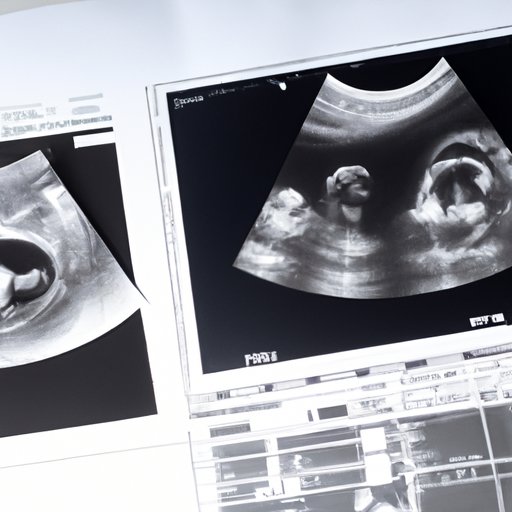
Introduction
Maternal Fetal Medicine or MFM is a specialized field of medicine that focuses on monitoring and treating complications that can occur during pregnancy. It is an essential aspect of modern obstetric care and is vital to ensuring healthy outcomes for both expecting mothers and their unborn babies.
Maternal Fetal Medicine: An Overview of Care for Expecting Mothers and their Babies
Maternal Fetal Medicine is a branch of obstetrics that deals with high-risk pregnancies that may have complications affecting the mother, fetus or both. It consists of a team of specialists who work together to manage complications during pregnancy and delivery.
Maternal Fetal Medicine specialists provide comprehensive diagnostic and therapeutic services to patients with high-risk pregnancies. They are experts in pregnancy care and have advanced training in ultrasound, genetics, fetal monitoring, and prenatal diagnosis, among others.
The services offered by Maternal Fetal Medicine specialists include:
- Prenatal diagnosis of fetal anomalies through screening, diagnosis, and treatment of fetal conditions
- Fetal monitoring through ultrasound and other advanced technologies
- Management of maternal complications such as gestational diabetes, hypertension, and other medical conditions
- Management of chromosomal abnormalities through genetic counseling
- Care for high-risk pregnancies, including multiple gestations, HIV-positive mothers, and those with previous pregnancy complications
Maternal Fetal Medicine plays a vital role in ensuring healthy outcomes for both the mother and the baby. By identifying and managing complications during pregnancy, MFM specialists can improve the chances of a positive outcome for both.
The Importance of Maternal Fetal Medicine in Easing Pregnancy Complications
Complications during pregnancy can arise for a variety of reasons, but they can be managed through the right care. Common pregnancy complications include:
- Preeclampsia
- Gestational diabetes
- Placenta previa
- Preterm labor
- Preterm rupture of membranes
Maternal Fetal Medicine can help ease the complications by offering the best diagnostic tools and treatment options for each problem.
For example, Preeclampsia is a potentially life-threatening pregnancy complication that affects about 5–8% of all pregnancies. MFM specialists improve outcomes and ease the risks in a variety of ways including monitoring high-risk pregnancies through regular testing and ultrasounds, medications to reduce blood pressure, and delivery of the baby if necessary.
Research has shown that maternal-fetal medicine specialists can assist in retaining pregnancies and lower the risk of premature birth, as well as improving outcomes for those with gestational diabetes or high blood pressure during pregnancy.
Understanding Maternal Fetal Medicine: The Science Behind a Healthy Pregnancy
The practice of Maternal Fetal Medicine involves a combination of prenatal care, fetal diagnosis and treatment, and monitoring during and after birth. The three key players in MFM care are:
- Obstetricians who provide basic and routine prenatal care
- Perinatologists or Maternal Fetal Medicine specialists who provide specialized care and management of high-risk pregnancies
- Neonatologists who provide specialized care for newborns who need extra support, including premature or critically ill infants
Maternal Fetal Medicine care includes the use of technology to assist in identifying risk factors and potential complications before they become problematic. Some examples of the technology used include:
- Ultrasound
- Amniocentesis
- Chorionic villus sampling (CVS)
- Doppler flow studies
- Fetal echocardiography
- Fetal surgery
Fetal surgery is a relatively new innovation, and it involves a medical intervention on the fetus while still in the uterus. It allows for the correction of certain fetal complications, such as heart defects, before birth, and has the potential for reducing morbidity and mortality.
Exploring the Role of Maternal Fetal Medicine in High-Risk Pregnancies
A high-risk pregnancy is one that has an increased likelihood of complications for either the mother, the fetus, or both. High-risk pregnancies can be caused by a range of factors, including medical conditions, a history of previous pregnancy complications, and multiple pregnancies.
Maternal Fetal Medicine specialists play a crucial role in managing high-risk pregnancies. They provide close monitoring of the mother and the fetus to identify potential problems during pregnancy and delivery. By managing complications, they help to increase the chances for a healthy delivery.
Research has shown that the involvement of Maternal Fetal Medicine specialists can reduce the risk of stillbirth, preterm birth, and maternal complications such as pre-eclampsia and gestational diabetes.
The Evolution of Maternal Fetal Medicine: Advancements in Care for Expecting Mothers and their Unborn Children
Maternal Fetal Medicine has experienced significant advancements in the diagnosis and treatment of pregnancy complications. The advent of ultrasound technology, in particular, has revolutionized the field and has made it possible to detect fetal abnormalities during early pregnancy.
Other notable advancements include:
- Improved prenatal diagnosis for chromosomal anomalies
- Fetoscopic surgery for correcting some fetal anomalies
- Improved management of preterm labor
- Enhanced management of maternal medical conditions using evidence-based guidelines
The future of Maternal Fetal Medicine has also seen an increase in non-invasive diagnostics, including prenatal screening for genetic and chromosomal disorders, as well as treatments for the prevention and cure of complications.
Conclusion
Maternal Fetal Medicine plays an essential role in ensuring healthy outcomes for a high-risk pregnancy. With its specialized care and advanced diagnostic tools, MFM specialists can provide expecting mothers with comprehensive care that addresses potential pregnancy complications.
It is important for expecting mothers to receive Maternal Fetal Medicine care if they experience complications or are at risk of complications during their pregnancy. This will help ensure their health and that of their unborn baby.





